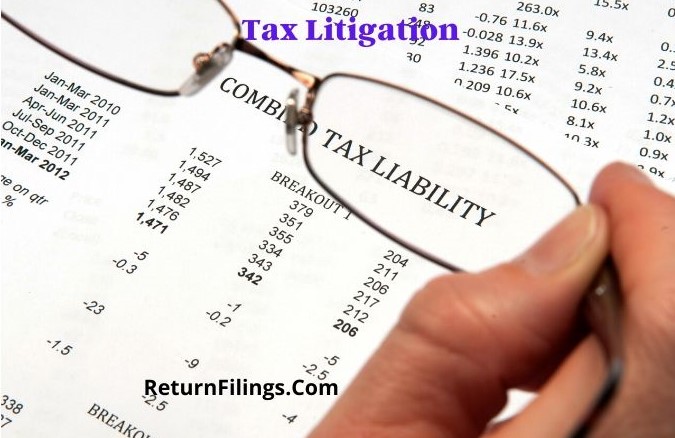Tax Litigation
Tax Litigation resolution comprises of proper and suitable reply to Assessing Officer in terms of Income Tax Provisions and various other settled case law rulings.
Start With Confidence
CA/CS Assisted | 4.8/5 Rating
CA/CS Assisted | 4.8/5 Rating
 Income tax being in the nature of major source of revenue to the Government, is governed by stringent Income Tax Acts, Rules, related circulars and notifications, it is being administered by Central Board of Direct Taxes (CBDT) and is regulated by Income Tax Commissioners / Assessing Officers.
Tax litigation is another side of same coin as tax compliance and tax litigation goes hand-in-hand. Revenue Authorities step into the shoe of regulator, always look the financial information from the angle of beneficial interest to the Government. On the other hand the tax payer (Assessee) need to comply with the tax laws and related circulars and notification, in case of any ambiguity in the tax laws the assessee may take the position in its beneficial interest. Thus, there arises the situation of tax litigation.
Tax Litigation is just the misalignment between the taxpayer understanding of facts and tax officer assumptions. This can be resolved by providing the facts and circumstances along-with documentary evidences having proper adherence to the Tax Laws and rules.
There are various types of notices can be served by the tax officer,
Income tax being in the nature of major source of revenue to the Government, is governed by stringent Income Tax Acts, Rules, related circulars and notifications, it is being administered by Central Board of Direct Taxes (CBDT) and is regulated by Income Tax Commissioners / Assessing Officers.
Tax litigation is another side of same coin as tax compliance and tax litigation goes hand-in-hand. Revenue Authorities step into the shoe of regulator, always look the financial information from the angle of beneficial interest to the Government. On the other hand the tax payer (Assessee) need to comply with the tax laws and related circulars and notification, in case of any ambiguity in the tax laws the assessee may take the position in its beneficial interest. Thus, there arises the situation of tax litigation.
Tax Litigation is just the misalignment between the taxpayer understanding of facts and tax officer assumptions. This can be resolved by providing the facts and circumstances along-with documentary evidences having proper adherence to the Tax Laws and rules.
There are various types of notices can be served by the tax officer,
- Intimation under section 143(1)
- Notice under section 143(2)
- Notice under section 142(1)
- Notice under section 148
- Notice under section 245
- Understand the nature and type of the business entity in order to ensure the exact provision of income tax applicability.
- Analyse the financial statement mapping up with the tax return filed in order to ensure the details covered in tax return.
- To authenticate the tax notice issued by the tax department through “DIN” (Demand Identification Number) or through intimation communication reference number online on e filing portal of income tax.
- Understand the details asked in notice and mapping it with financials and tax return of the assessee.
- Develop overall tax litigation approach.
- Exploring alternative tax dispute resolution avenues.
- Preparing and Drafting suitable reply corroborating the evidences available.
- Appearing before tax authorities on behalf of the assessee.
- Making arguments on the facts and circumstances in light of tax provisions and rules before the tax authorities.
- Providing justification to facts and circumstances in light of other case laws
- Draft and filing further appeal if applicable at the CIT (A) or ITAT Levels (Commissioner of Income tax (appeals) or Income Tax Appellate Tribunal)
- Appeal and making representation to DRP (Dispute Resolution Panel) if required based upon the circumstances of the case.
- Can also approach for Authority of Advance Ruling (AAR) for settling a tax position before any tax litigation, mostly required in case of foreign companies.
- Preparing and Drafting appeal for representation before High Court / Supreme Court (applicable only in case of “question of law” as Income Tax Appellate Tribunal (ITAT) is final fact finding authority)
